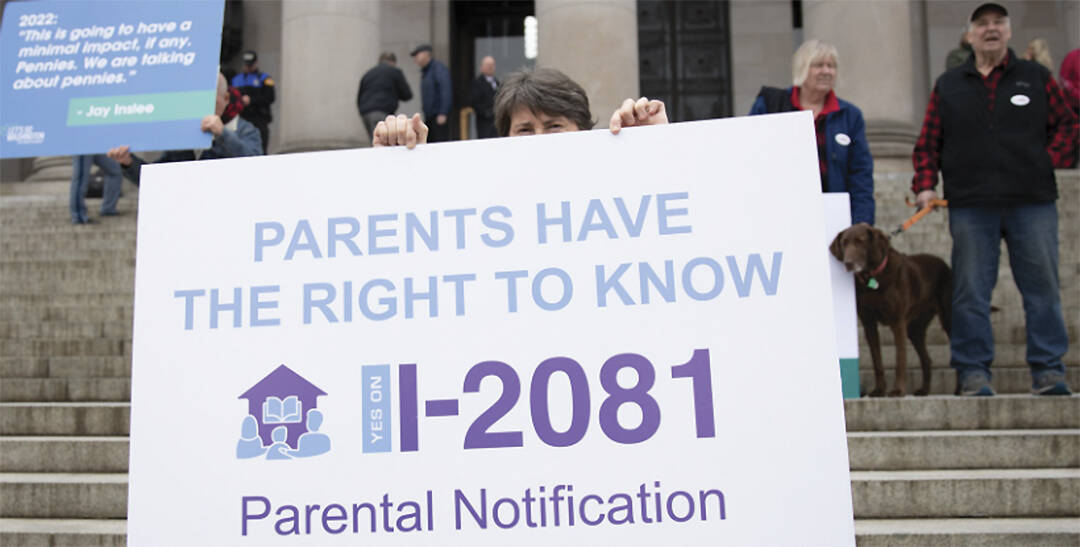The “Parent’s right to know,” a citizen-led initiative regarding parental authority over kids in public schools, will become law in June.
While the measure won wide bipartisan support, some legislators say they are keeping a close eye on the way it is implemented.
Sen. Jamie Pederson, D-Seattle, who ended up voting in favor of the initiative, said he has some concerns its passage will have on student access to things like birth control or mental health services. He believes parts of the initiative are unclear.
“Does it mean that a parent would have to consent for some health-care decision that older children have the right to make on their own?” Pederson asked. “I think it’s safe to expect that it will be misused by someone to try to achieve that outcome.”
The initiative does not amend any current state laws but adds additional language detailing parental rights. Legislators say courts should refer to it narrowly with current law taking precedence. The Superintendent of Public Instruction is required to provide schools with guidance on how the initiative should be adopted.
“This initiative declares fifteen rights that parents and guardians of public-school children have, including the right to receive or be notified of academic, medical, safety and law enforcement matters, the right to access certain materials and records, the right to opt their children out of various activities. It shows that parents are involved,” said Lisa Wellman D-Mercer Island.
Wellman, who previously wrote the Parents Bill of Rights and worked as a public-school kindergarten teacher, backs the initiative but thinks the language could be clearer.
“The legislature and our allies will be keeping our eyes on implementation so that we can come back immediately, should interpretation by districts cause any harm to young people because that is not what this is about,” said Claire Wilson, D-Federal Way.
Dawn Land, a signature gatherer for the initiative, said she pulled her kids out of public school when she took issue with some aspects of the curriculum. She said her third-grade daughter came home crying after learning that polar bears, listed as endangered 16 years ago, were dying because of environmental changes. Land said she felt like that information might be pushing a political ideology. “Teachers shouldn’t be able to have any political agenda in the classrooms,” she said.
Other parents shared stories of teachers and students having private conversations regarding mental and physical health and gender identity, and they said they felt like that shouldn’t happen.
However, teachers say such conversations are routine, especially in the early grades. When a child acts out, or seems depressed, or is failing to thrive in a classroom, teachers nearly always will have a private conversation to determine how they can help. Also, teachers are required by law to report suspected emotional or physical child abuse and finding out if that is happening often requires a personal conversation.
Semi Bird, Republican candidate for governor and a former school board member, spoke in favor of the bill. “Parents are the primary stakeholders in their children’s education,” Bird said. “Science has proven that when parents are more involved in their children’s education, children perform better academically, and acclimate to their education environment better.”
Support for parents being actively involved in the education of their children was widely supported by both parties, but some wary Democrats say they won’t allow the initiative to be used to limit student rights. “If some conservative parent brings a case against a school district and gets a conservative local superior court judge to violate the rights of a child, we’re both going to have some work to do to protect the rights of that child, and then also, that will be a reason for us to consider getting rid of that language that’s being abused,” Pederson said.



